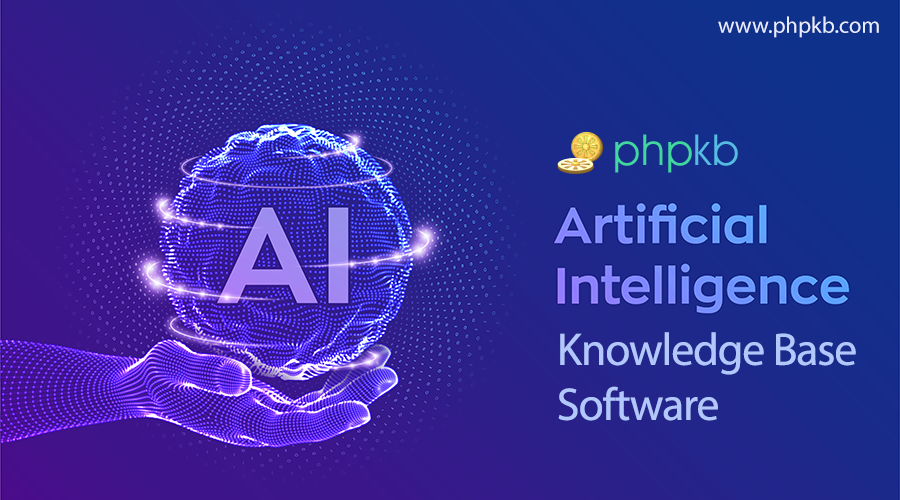Empowering Customer Support: The Transformative Role of AI-Enabled Knowledge Bases
Estimated Reading Time: 4 MinutesThis article provides an in-depth look at how AI-enabled knowledge bases can enhance productivity in customer support, offering a balanced view of its benefits and challenges. The emphasis is on practical applications and considerations for businesses looking to implement this technology.
How AI-Enabled Knowledge Base Can Improve Productivity?
In the dynamic world of customer support, the quest for efficiency and effectiveness is unending. Organizations continually seek ways to enhance their customer service while optimizing the productivity of their support teams. One transformative solution gaining traction is the integration of Artificial Intelligence (AI) with knowledge base systems. This fusion is revolutionizing how customer support operates, significantly improving productivity and customer satisfaction.

Understanding AI-Enabled Knowledge Bases
An AI-enabled knowledge base is not just a repository of information; it’s a smart system that learns, adapts, and provides intelligent responses to customer queries. It uses technologies like machine learning, natural language processing (NLP), and AI algorithms to understand, categorize, and resolve customer issues more efficiently than traditional systems.
The Impact on Customer Support Productivity
-
Automated and Rapid Responses: AI-driven knowledge bases can provide instant responses to common customer queries. This automation reduces the workload on human agents, allowing them to focus on more complex issues. Moreover, AI’s ability to learn from past interactions ensures that the quality of automated responses continually improves over time.
-
Enhanced Self-Service Options: Customers increasingly prefer self-service options for quick problem resolution. AI-enabled knowledge bases offer sophisticated self-service portals where customers can find answers without human intervention. By guiding customers through interactive solutions and FAQs, these systems reduce the number of incoming queries to support agents.
-
Improved Accuracy and Relevance: AI algorithms analyze vast amounts of data to provide the most accurate and relevant information in response to queries. This capability significantly reduces the chances of misinformation and ensures that customers receive the most appropriate solutions.
-
Personalized Customer Experiences: AI systems excel at personalization. They analyze customer history and preferences to tailor responses and recommendations. This level of personalization not only enhances customer satisfaction but also increases the efficiency of the support process.
-
Efficient Information Retrieval: AI-powered search functionalities within knowledge bases allow support agents to retrieve information quickly and efficiently. Instead of sifting through documents manually, agents can rely on AI to find precise information, significantly reducing response times.
Real-World Applications and Success Stories
Numerous companies have successfully implemented AI-enabled knowledge bases, reaping substantial benefits:
- A leading e-commerce company integrated an AI knowledge base for its customer service, resulting in a 50% reduction in response times and a significant increase in customer satisfaction scores.
- A telecom provider employed an AI-driven system to handle routine queries, freeing up agents to handle 30% more complex issues per day.
Challenges and Considerations
While AI-enabled knowledge bases offer significant advantages, there are challenges and considerations to keep in mind:
- Data Privacy and Security: As AI systems process large amounts of customer data, maintaining privacy and security is paramount.
- Quality of Input Data: The effectiveness of an AI system depends on the quality of the data fed into it. Regular updates and checks are essential to maintain its accuracy and relevance.
- Balancing AI and Human Touch: While AI can handle many aspects of customer support, the human element remains crucial. Organizations must find the right balance between automated and human-assisted services.
Implementing AI-Enabled Knowledge Bases
For businesses looking to implement AI in their knowledge bases, here are some steps to consider:
- Identify Objectives: Define what you want to achieve with the AI-enabled knowledge base – be it reducing response times, handling more queries, or improving customer satisfaction.
- Choose the Right Technology: Select AI tools and software that align with your objectives and integrate seamlessly with your existing systems.
- Train Your Team: Ensure your support team is well-trained to use the AI system effectively.
- Monitor and Iterate: Continuously monitor the system’s performance and make adjustments as needed.
Conclusion
The integration of AI into knowledge bases is not just a futuristic concept; it’s a practical solution that’s already delivering tangible benefits in customer support. By automating routine tasks, providing rapid and accurate responses, and enhancing customer self-service, AI-enabled knowledge bases are setting new standards in customer support efficiency. Organizations that embrace this technology will not only see an improvement in productivity but also in customer satisfaction and loyalty. The future of customer support is here, and it's powered by AI.